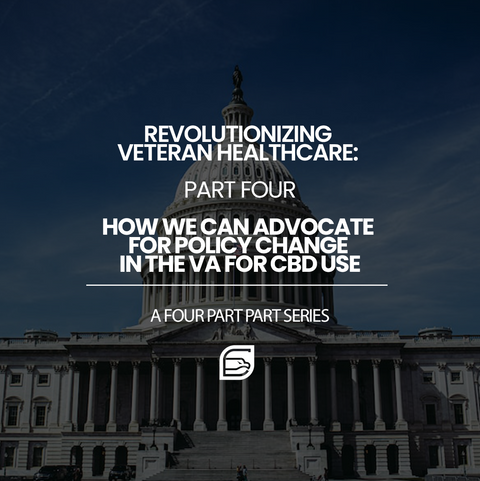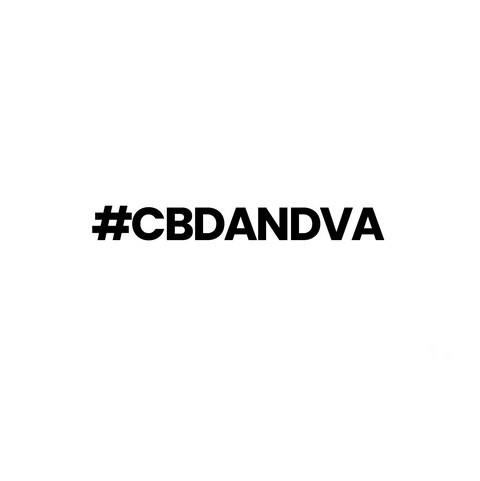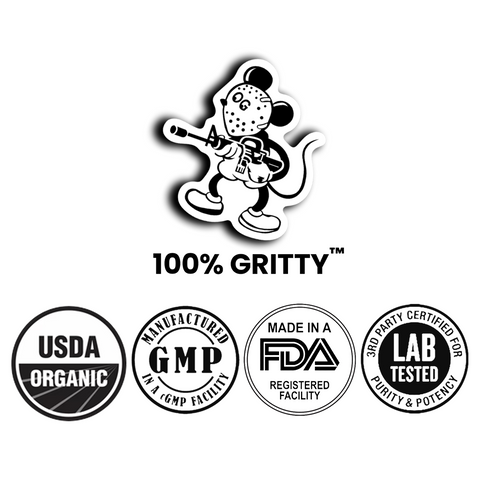As a nation, we owe a debt of gratitude to our brave veterans who have served and sacrificed to protect our freedom. Unfortunately, many veterans suffer from chronic pain, PTSD, and other debilitating conditions, often without access to effective treatments. One potential solution is CBD, a natural and safe alternative that has been proven effective in managing these conditions. However, the Veterans Affairs (VA) has yet to approve its use, leaving many veterans to suffer needlessly.
In this final part of the four-part series, we examine the issue of the VA's policy on CBD use and why it is critical to advocate for policy change to allow veterans access to this treatment option. We explore the scientific evidence and expert opinions that support the use of CBD in treating various conditions, including chronic pain and PTSD. We also discuss the barriers that have prevented the VA from approving the use of CBD and the impact of these barriers on the lives of our veterans.
Most importantly, we outline the steps that we can take to advocate for policy change, including contacting our representatives, raising awareness about this critical issue, and joining the fight to provide our veterans with the care and treatment they deserve. Our veterans have sacrificed so much for our country, and it is our duty to ensure that they receive the best possible care.
Join us in our fight to break the barriers and allow CBD use for veterans in the VA. Explore this blog post to learn more about how we can make a difference in the lives of those who have sacrificed so much for our country. By taking action today, we can ensure that our veterans receive the care and treatment they deserve.
Educate Policymakers and the Public
One of the first steps in advocating for CBD as a treatment option for veterans is to educate policymakers and the public about its benefits. This can be done through outreach and education campaigns that dispel myths and misconceptions about CBD. Providing information on the safety and efficacy of CBD can help persuade policymakers to adopt it as a treatment option.
Work to Change Federal Classification
CBD is currently classified as a Schedule I drug by the federal government, which makes it difficult for the VA to prescribe it to veterans. Advocating for changes to the Controlled Substances Act to reclassify CBD can help remove this barrier.
Develop Guidelines for Prescribing and Monitoring CBD Use
It is important to develop guidelines for prescribing and monitoring the use of CBD. These guidelines should be based on scientific evidence and provide clear instructions on how to prescribe and monitor the use of CBD. By doing this, the VA can monitor its effectiveness and ensure that it is being used safely and appropriately.
Develop Best Practices for Medical Professionals
Working with medical organizations and professional associations to develop best practices for prescribing and using CBD can equip medical professionals to prescribe CBD to veterans safely and effectively. These best practices should be based on the latest scientific evidence and should provide clear instructions on how to prescribe and monitor the use of CBD.
Advocate with Veterans' Organizations
Working with veterans' organizations can help raise awareness of the benefits of CBD and put pressure on the VA to adopt it as a treatment option. These organizations can help ensure that veterans have access to safe and effective treatments for their conditions.
Work with Policymakers and Legislators
Advocating for the use of CBD as a treatment option for veterans at all levels of government can involve lobbying for changes to federal and state laws, as well as working with local governments to encourage the use of CBD as a treatment option for veterans. By working with policymakers and legislators, we can help ensure that veterans have access to safe and effective treatments.
The Bottom Line
The need for safe and effective treatment options for veterans suffering from chronic pain, anxiety, and PTSD cannot be overstated. CBD has shown great promise in treating these conditions, yet the VA's policy of not prescribing CBD to veterans has been a barrier to their access to this treatment.
Enacting policy change in the VA to allow veterans to use CBD requires a concerted effort. It involves educating policymakers and the public, working to change federal classification, developing guidelines for prescribing and monitoring CBD use, developing best practices for medical professionals, advocating with veterans' organizations, and working with policymakers and legislators.
To achieve this change, we must all take action. We can start by contacting our local representatives and advocating for changes to VA policy. We can support organizations that are working to raise awareness of the benefits of CBD and lobbying for policy change. We can also educate ourselves and those around us about the benefits of CBD, dispelling myths and misconceptions.
We owe it to our veterans to provide them with the best possible treatment options. By working together, we can help make CBD a viable treatment option for veterans in need. Let us take action and make this change a reality.
Reference List:
Shannon, S., & Opila-Lehman, J. (2016). Effectiveness of cannabidiol oil for pediatric anxiety and insomnia as part of posttraumatic stress disorder: a case report. The Permanente Journal, 20(4), 108-111. doi: 10.7812/TPP/16-005
Schreiner, A. M., & Dunn, M. E. (2017). Residual effects of cannabis use on neurocognitive performance after prolonged abstinence: a meta-analysis. Experimental and Clinical Psychopharmacology, 25(5), 400-414. doi: 10.1037/pha0000146
Cuttler, C., Spradlin, A., & McLaughlin, R. J. (2018). A naturalistic examination of the perceived effects of cannabis on negative affect. Journal of affective disorders, 235, 198-205. doi: 10.1016/j.jad.2018.04.054
National Center for Complementary and Integrative Health. (2021). Cannabis (Marijuana) and Cannabinoids: What You Need To Know. Retrieved from https://www.nccih.nih.gov/health/cannabis-marijuana-and-cannabinoids-what-you-need-to-know
Harvard Health Publishing. (2021). Cannabidiol (CBD) - what we know and what we don't. Retrieved from https://www.health.harvard.edu/blog/cannabidiol-cbd-what-we-know-and-what-we-dont-2018082414476
Yale School of Medicine. (2021). Cannabinoids and Pain Management: What Do We Know So Far? Retrieved from https://medicine.yale.edu/news-article/17586/
NYU Langone Health. (2021). Medical Cannabis. Retrieved from https://nyulangone.org/conditions/medical-cannabis





Comments (0)
There are no comments for this article. Be the first one to leave a message!